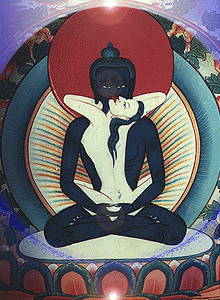Yes, all of this samsaric stuff is like this: wholly mechanical.treehuggingoctopus wrote:Buddhist ethics does certainly seem to presuppose our making choices (and being responsible for the choices we make provided they follow our intention). I am far less certain to what extent such a position is fully compatible with Mahayana teachings on pratitya sammutpada and emptiness. If all of my lifeworld -- all of my karmic vision -- both on the side of the subject and on the side of the object is produced by and on the basis of my past deeds, there is no room for any genuine choice, is there?DGA wrote:Our choices are not causeless. Choices are legible in actions. Actions follow from intentions. Intentions emerge from [the complex of mental processes and sensory inputs that predicate intention]. Which is to say that it is easy to discern a Buddhist doctrine of choice, especially in light of different indices of ethical conduct that are given for lay and ordained people.
What is the Vinaya if not a catalogue of choices one is not to make? Similarly for the Brahma Net Sutra precepts? Precepts themselves presuppose the inevitability of choice in that they aim to limit the range of one's choices preemptively. To my mind, the fact that Buddhism offers precepts to its followers is the measure to which it assumes the existence of some kind of choice (murder or not?).
That which is beyond the produced subject and the constructed objects, that which is uncreated, unconfined and unbound can hardly make any choices either, can it? All choices are and must stay within the domain of karmic pushes and pulls.
Being able to choose this from that means that, at least for a moment, one is relatively free from that field of determination and conditioning. Which means that the possibility of ethical choice presupposes moments of awakening. This is how I've been taught.
